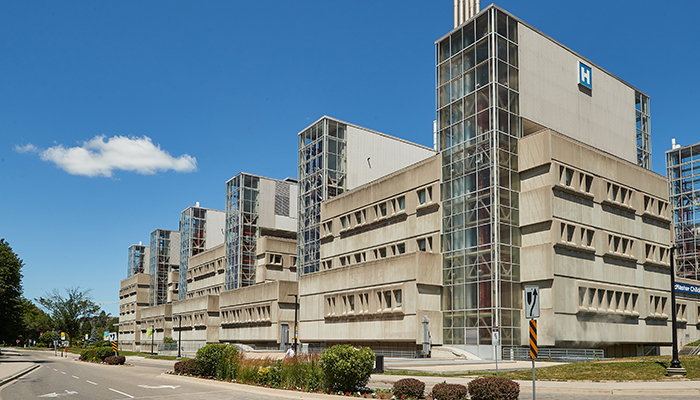Students need a safe return to the classroom, now

By Bruce Squires, President of McMaster Children’s Hospital and Chair of the Directors of Children’s Healthcare Canada
Schools are not out for summer just yet. Getting Ontario students back into the classroom for the remainder of this school year must be a priority, now.
The team at McMaster Children’s Hospital has been ringing alarm bells for months about the devastating impact that social isolation is having on children’s health and well-being. What is seen in hospital is a direct reflection of what’s going on in the community, and is likely just the tip of the iceberg. The trends are beyond concerning.
The number of youth being admitted to the children’s hospital after a suicide attempt has tripled since this time last year. Many of these kids are staying as inpatients in hospital for longer periods as well, due to the severity of the attempts. Admissions for substance use disorders have doubled since the start of the pandemic. This includes an increase in admission for the use of opioids, which can have deadly consequences. Referrals to the hospital’s eating disorders program have increased by an alarming 90 per cent since spring 2020. Admissions are expected to grow by 33 per cent.
During uncertain times, anxiety can be overwhelming, pushing young people to grasp for any bit of control they can find. More and more, we are seeing this result in self-harm.
An increasing number of kids are in crisis and emerging evidence shows that the negative impact is not shared equally by everyone. Black, Indigenous and racialized youth are most severely affected.
Schools are a critical part of the remedy to this crisis. In-person learning provides routine, daily structure, accountability, human contact and a broad range of interpersonal situations that children need to thrive. This helps young people build important life skills and coping strategies for challenging times, and supports overall development, growth, health and well-being. With the increased stressors on families, the risk of child abuse or neglect is also increasing. For some children, school is a shelter from a difficult home life. Many rely on nutrition programs.
Reopening schools may be seen as an unnecessary risk to the health-care system at a time when hospital critical care capacity has been stretched to the limit. The pressure on our adult intensive care units should not be diminished, nor should the stress felt everyday by the staff and physicians who support those units. However, hospital occupancy by COVID-19 patients is coming down. And while we must remain vigilant against the spread of the virus, keeping schools closed does not affect our ability to preserve hospital capacity.
Recent studies show that in most instances, COVID-19 transmission within schools is extremely low, even with the variant strains circulating. Continuing to keep kids away from school forces them to pay an unfair toll, as there is no evidence that schools reopening will significantly drive either new cases or hospitalizations.
Also, thousands of adults in our region are receiving COVID-19 vaccines every day. In the City of Hamilton, more than 230,000 doses of vaccine have been administered. This means that approximately 45 per cent of eligible adults in our community have received at least one dose. And this list now includes teachers, education workers, school staff and parents, which will provide the increased peace-of-mind for those who are so important to the education, health and well-being of our children.
If these positive developments in our fight against COVID-19 aren’t enough to reopen schools, what measures do we need to achieve before kids can get back to class? In-person learning has been maintained during previous phases of lockdown in regions across the province, so what’s different this time around? How many kids in crisis is too many before we really start to turn our attention toward addressing the problem?
Repairing the damage already done to kid’s health by this pandemic should start immediately. The longer that students remain out of the classroom, the worrisome health trends we are seeing will increase exponentially and potentially cause irreparable damage to an entire generation. There are only six weeks left before summer break. Every day counts. Even a few weeks in the classroom will provide the much-needed mental health, educational, and social benefits our children desperately need at the end of this disrupted school year.
A return to in-person learning must be an urgent priority of our pandemic effort right away.
NewsRelated News
News Listing

From seed to success: How philanthropy fuels child health research at McMaster
Funding, News, Research, Research in the Media
1 week ago

New funding boosts specialized neonatal care at St. Joseph’s Healthcare Hamilton
Announcements, Funding, News
November 13, 2024

Hamilton Health Sciences ➚
RSV hits close to home for McMaster Children’s Hospital emergency doctor
News
November 12, 2024
